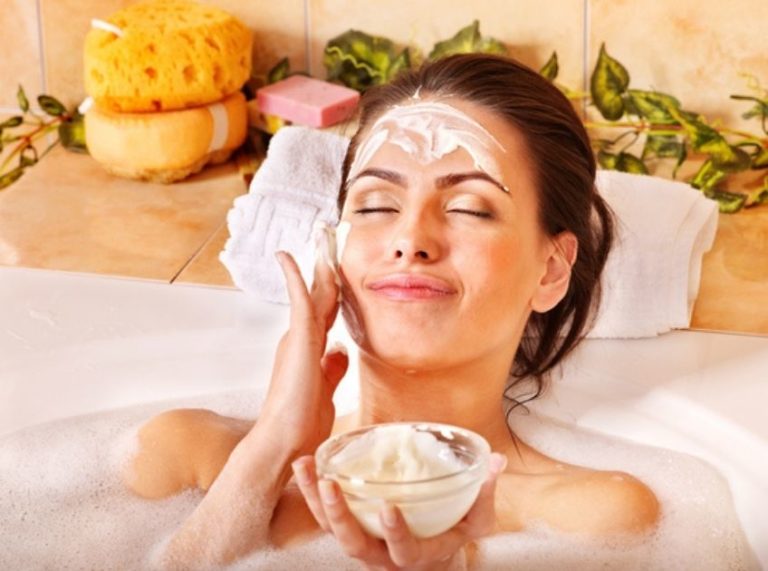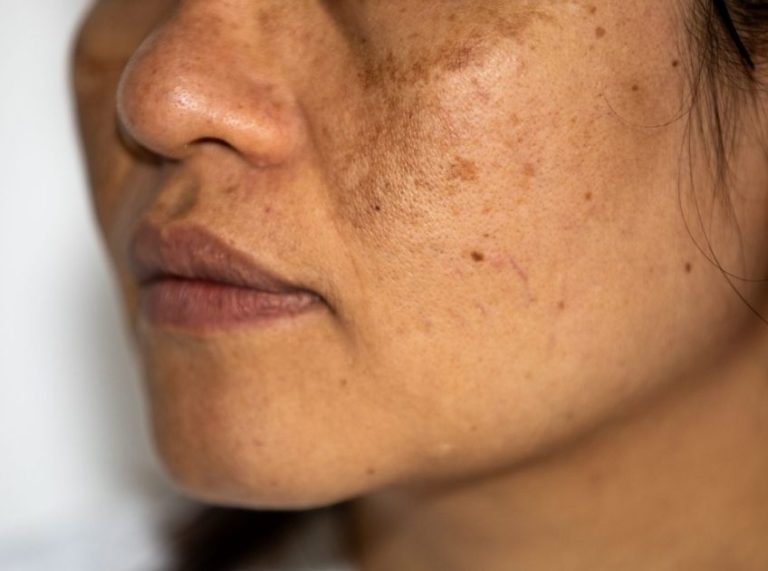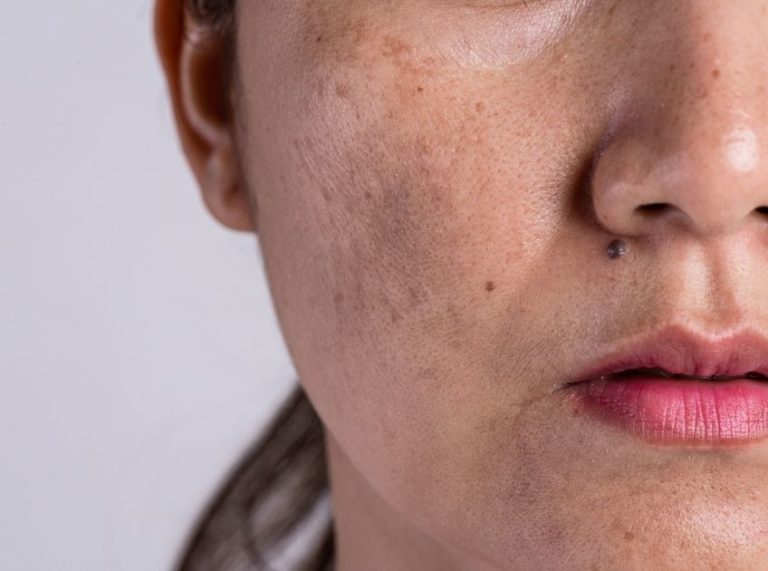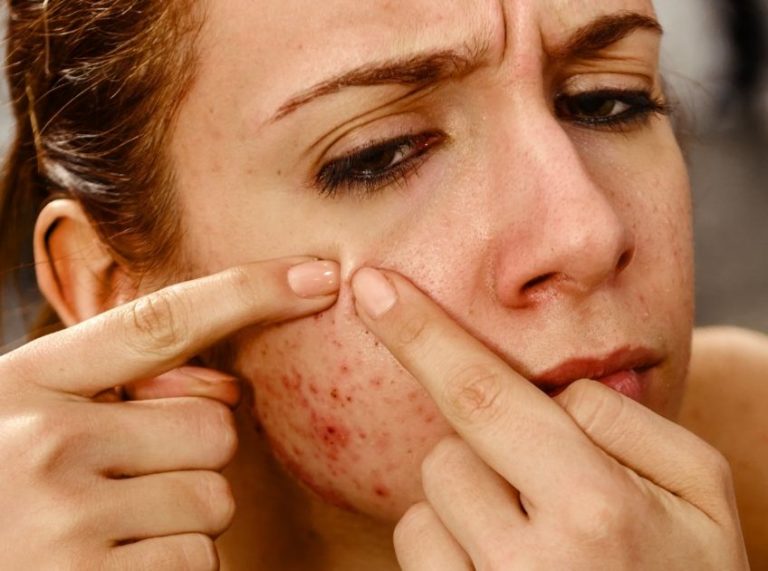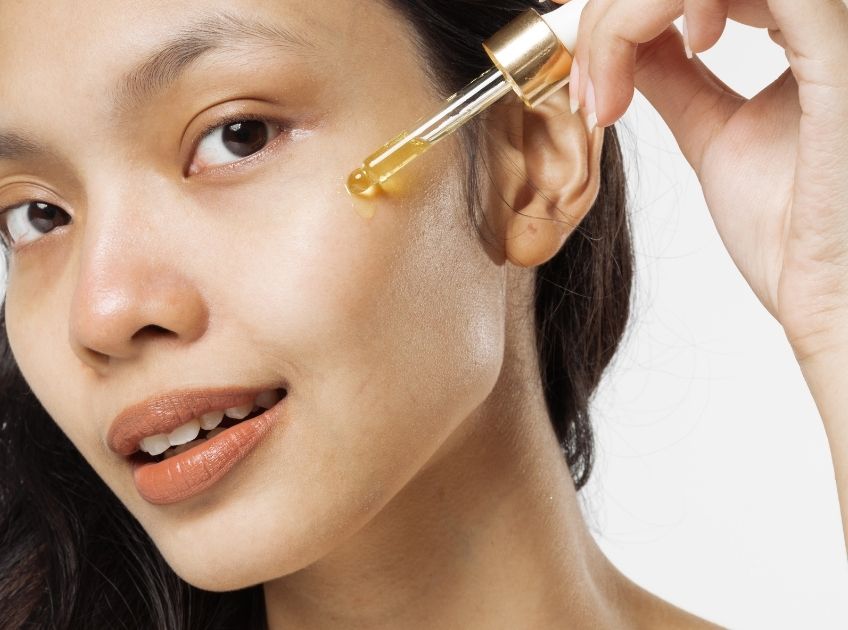
Important: This article is for informational purposes only. Please read our full disclaimer for more details.
Healthy, glowing skin is a reflection of how well we nourish and protect it — not just from the outside, but from within. While commercial creams often promise instant results, they can contain synthetic ingredients that strip your skin of its natural oils over time. Natural plant-based oils, on the other hand, offer a gentle, deeply nourishing alternative.
Rich in vitamins, antioxidants, and essential fatty acids, natural oils can moisturize, repair, and protect your skin barrier without clogging pores. Whether you have dry, oily, or sensitive skin, there’s an oil that can work perfectly for your needs. Below are eight of the most effective natural oils that dermatologists and skincare experts recommend for healthy, youthful-looking skin.
Article Contains
Nature’s Elixirs: 8 Best Natural Oils for Healthy Skin
1. Jojoba Oil – The Skin Balancer
Jojoba oil closely mimics the natural sebum produced by our skin, making it ideal for almost every skin type. It helps regulate oil production, hydrate deeply, and prevent acne breakouts.
How to use:
- Apply a few drops of cold-pressed jojoba oil to clean, damp skin.
- Massage gently until absorbed.
- Use daily as a moisturizer or as part of your nighttime routine.
Why it works: Jojoba oil is rich in vitamin E, B-complex vitamins, and zinc, which help repair damaged skin and maintain elasticity. Research published in the Journal of Ethnopharmacology suggests that jojoba oil’s anti-inflammatory and wound-healing properties make it an excellent ingredient for maintaining skin health (1).
2. Argan Oil – Liquid Gold for Skin
Extracted from the kernels of the Moroccan argan tree, argan oil is often referred to as “liquid gold.” It deeply moisturizes dry skin, reduces signs of aging, and enhances elasticity.
How to use:
- Warm a few drops of argan oil between your palms.
- Gently pat onto your face, neck, or dry areas of your body.
- Use both morning and night for best results.
Why it works: Argan oil is rich in vitamin E, essential fatty acids, and antioxidants. A study published in Clinical Interventions in Aging found that topical application of argan oil improved skin elasticity and hydration significantly in postmenopausal women (2).
3. Rosehip Seed Oil – The Natural Anti-Ager
Rosehip seed oil is a lightweight, fast-absorbing oil packed with vitamins A and C, known for their brightening and collagen-boosting effects. It helps fade scars, fine lines, and pigmentation.
How to use:
- Apply 3–4 drops to your skin after cleansing.
- Massage gently before bedtime.
- Use daily for an even skin tone and improved texture.
Why it works: According to a 2015 study published in the International Journal of Molecular Sciences, rosehip oil contains bioactive compounds like trans-retinoic acid that support cell regeneration and skin repair, making it a natural alternative to retinol without irritation (3).
4. Coconut Oil – Deep Nourishment for Dry Skin
Coconut oil is one of the most widely used natural moisturizers, especially for dry or flaky skin. Its fatty acids help create a protective barrier, locking in moisture while soothing irritation.
How to Use:
- Warm a small amount of virgin coconut oil and apply to clean skin.
- Leave it overnight as a deep moisturizer or use it as a body oil.
Why it works: Coconut oil contains lauric acid, known for its antimicrobial and anti-inflammatory properties (4). Studies in the Journal of Traditional and Complementary Medicine indicate that it enhances skin hydration and acts as a natural emollient, improving the skin barrier (5).
5. Sweet Almond Oil – The Vitamin E Powerhouse
Sweet almond oil is a gentle, non-greasy oil perfect for sensitive and dry skin. It helps lighten dark spots, smooth fine lines, and protect against UV-induced damage.
How to Use:
- Apply a few drops after bathing to seal in moisture.
- Massage gently on your face or body.
- Use as a makeup remover for delicate areas like the eyes.
Why it works: Rich in vitamin E and omega fatty acids, almond oil improves skin tone and texture. A study in Complementary Therapies in Clinical Practice found that topical application of almond oil enhanced skin smoothness and prevented photoaging (6).
6. Olive Oil – The Ancient Beauty Secret
Used since ancient Greek and Egyptian times, olive oil is an excellent source of squalene and antioxidants that deeply moisturize and protect the skin from premature aging.
How to Use:
- Massage a few drops onto damp skin after a shower.
- Use as a night moisturizer or body oil.
- Mix with sugar or oatmeal for a gentle exfoliating scrub.
Why it works: Olive oil’s high concentration of polyphenols and vitamin E provides strong antioxidant protection. Research in the Journal of Cosmetic Dermatology shows that its compounds reduce oxidative stress and improve skin elasticity (7).
7. Tea Tree Oil – The Acne Fighter
Tea tree oil is a potent antibacterial and anti-inflammatory essential oil that combats acne-causing bacteria and reduces redness. It is ideal for oily and acne-prone skin when diluted properly.
How to Use:
- Mix two drops of tea tree oil with a carrier oil like jojoba or coconut oil.
- Apply it to acne-prone areas using a cotton swab.
- Use 2–3 times a week.
Why it works: Tea tree oil contains terpinen-4-ol, a compound with proven antimicrobial effects. Clinical studies published in the Australasian Journal of Dermatology found that tea tree oil significantly reduced acne lesions and inflammation with regular use (8).
8. Marula Oil – The Youth Preserver
Marula oil is extracted from the nuts of the marula fruit and is rich in antioxidants, omega-6, and omega-9 fatty acids. It hydrates, smooths fine lines, and enhances radiance without leaving a greasy feel.
How to Use:
- Apply 2–3 drops to freshly cleansed skin.
- Gently massage until absorbed.
- Ideal for both day and night use.
Why it works: Marula oil’s light texture allows for deep absorption while delivering intense hydration. A study in the Journal of Ethnopharmacology highlighted its ability to improve skin smoothness, elasticity, and resistance to environmental stressors (9).
Frequently Asked Questions (FAQ’S)
1. Can I use natural oils if I have oily or acne-prone skin?
A. Yes. Lightweight oils like jojoba and rosehip are non-comedogenic, meaning they won’t clog pores. Tea tree oil can also help reduce acne when diluted with a carrier oil.
2. How often should I apply facial oils?
A. You can use them daily, ideally after cleansing and toning. Applying oils to slightly damp skin helps lock in moisture more effectively.
3. Are these oils suitable for sensitive skin?
A. Most natural oils are gentle, but it’s always best to do a patch test first. Oils like almond, jojoba, and marula are excellent for sensitive skin as they soothe irritation and dryness.
When it comes to skincare, simplicity and consistency are key. Natural oils provide essential nutrients your skin craves, helping you achieve a healthy, youthful glow without harsh chemicals. Whether you’re targeting dryness, acne, or early signs of aging, incorporating one or more of these natural oils into your daily routine can make a remarkable difference.
